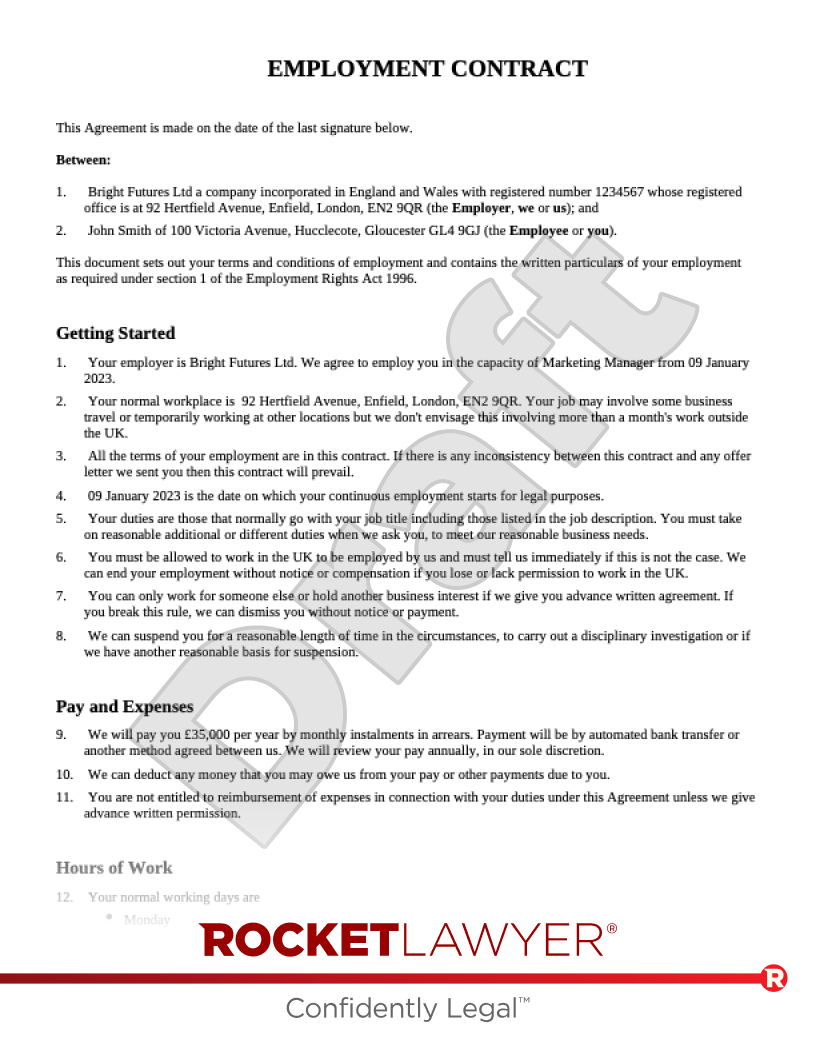What are post-employment restrictions and why are they tricky?
Post-employment restrictions (also known as ‘restrictive covenants’, ‘post-termination restrictions’ and ‘PERs’) are contractual clauses prohibiting employees from doing a specific thing after their employment ends. For example, a PER may restrict an employee from joining a competitor.
PERs are void as an unlawful restraint of trade unless they go no further than necessary to protect the employer’s legitimate business interests. In other words, if PERs are not reasonable, they are void.
Reasonableness depends on the specific facts of the case so it is inherently hard to predict whether a court will enforce the covenant. Even carefully drafted restrictions sometimes fail.
What kind of restrictions may be enforceable?
Reasonable PERs aimed to stop misuse of the employer’s confidential information or business relationships can be enforceable.
To achieve this, employers may be able to prevent employees:
-
joining competing businesses (non-compete clauses)
-
poaching other employees (non-poaching clauses)
-
soliciting customers (non-solicitation clauses)
-
soliciting and doing business with customers (non-dealing clauses)
-
bypassing a business to go directly to their suppliers/clients (non-circumvention clauses)
Such PERs still must be reasonable in scope, area and duration. Read Non-solicitation and restrictive covenants for more information.
How can I make sure my PERs are reasonable?
Use PERs sparingly, only where you have a compelling business need and make sure they are limited in time and space. Blanket restrictions for all staff will undermine your case.
Identify exactly what information or relationships you are trying to protect specific to the particular job role.
Choose the minimum type, area, scope and duration of PERs which is adequate to protect the specific information or relationships you have identified. One size does not fit all.
Non-compete clauses are the hardest PERs to enforce. Only use them when no other restriction will do. This will help show that they are reasonable.
Time restrictions
When you decide how long the PER needs to be, think about the 'shelf-life' of the particular information or relationships you are trying to protect (eg how long it will take to build a relationship with an alternative member of staff, bearing in mind the frequency of contact).
Time periods of one, three or six months or, at the very most, one year are common, but must still be justified by the specifics of the business.
Geographical restrictions
The area covered by the restriction should be no greater than what is strictly necessary to protect your business' legitimate interests. The smaller the restricted area, the easier it will be to justify the PER.
Always think of concrete and specific justifications for the scope, area and duration of the PERs you want to impose (eg if the employee only works on UK business, then a Europe-wide restrictive covenant will probably fail).
Above all, don’t overreach. In the case of PERs, less is more.
What happens if PERs aren’t followed?
Where the PER is reasonable, and the employer has not agreed to waive it, the employee should comply with the restriction. Failing to comply with a reasonable PER can result in the former employer taking the former employee to court.
Ask a lawyer if you have questions about PERs.




